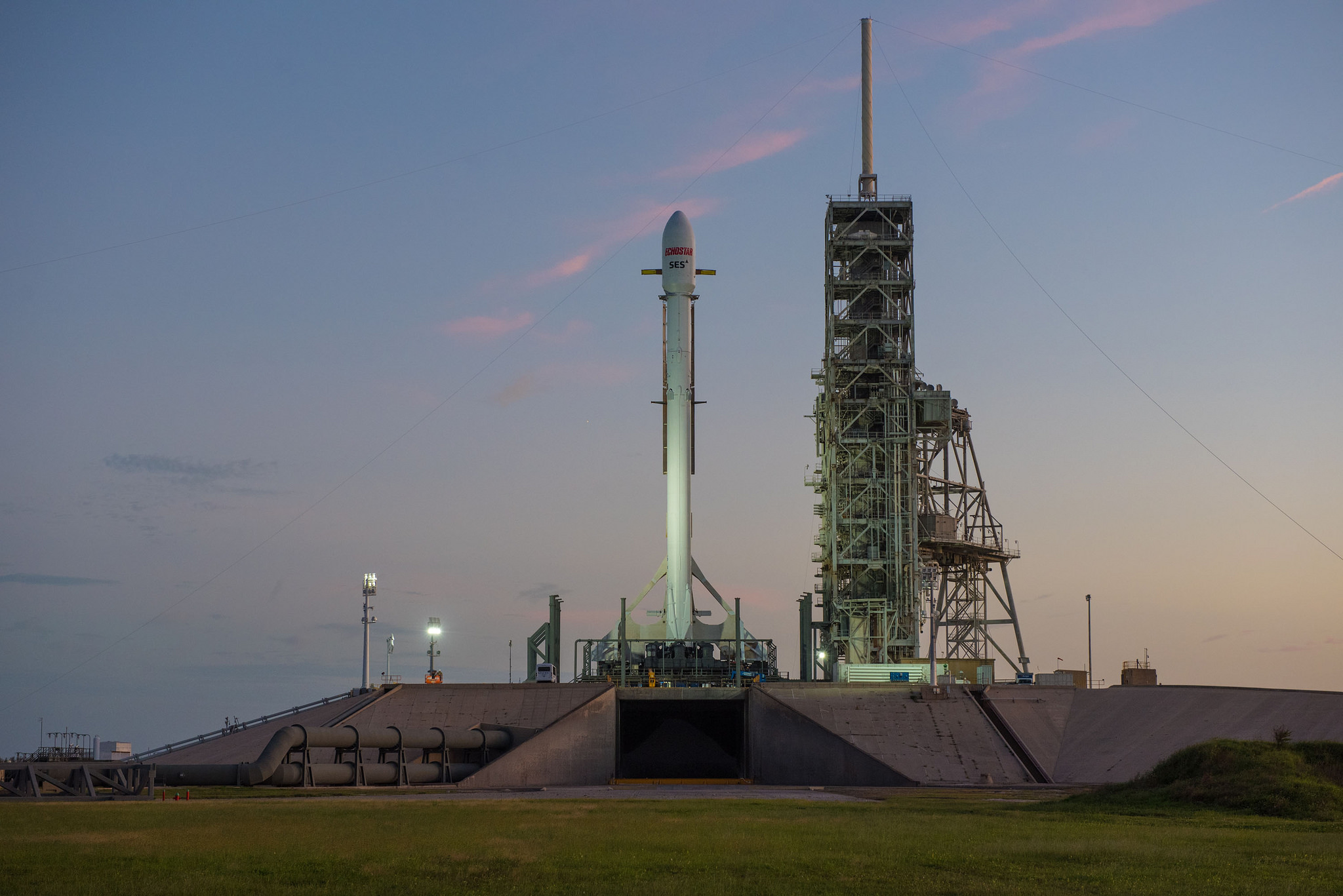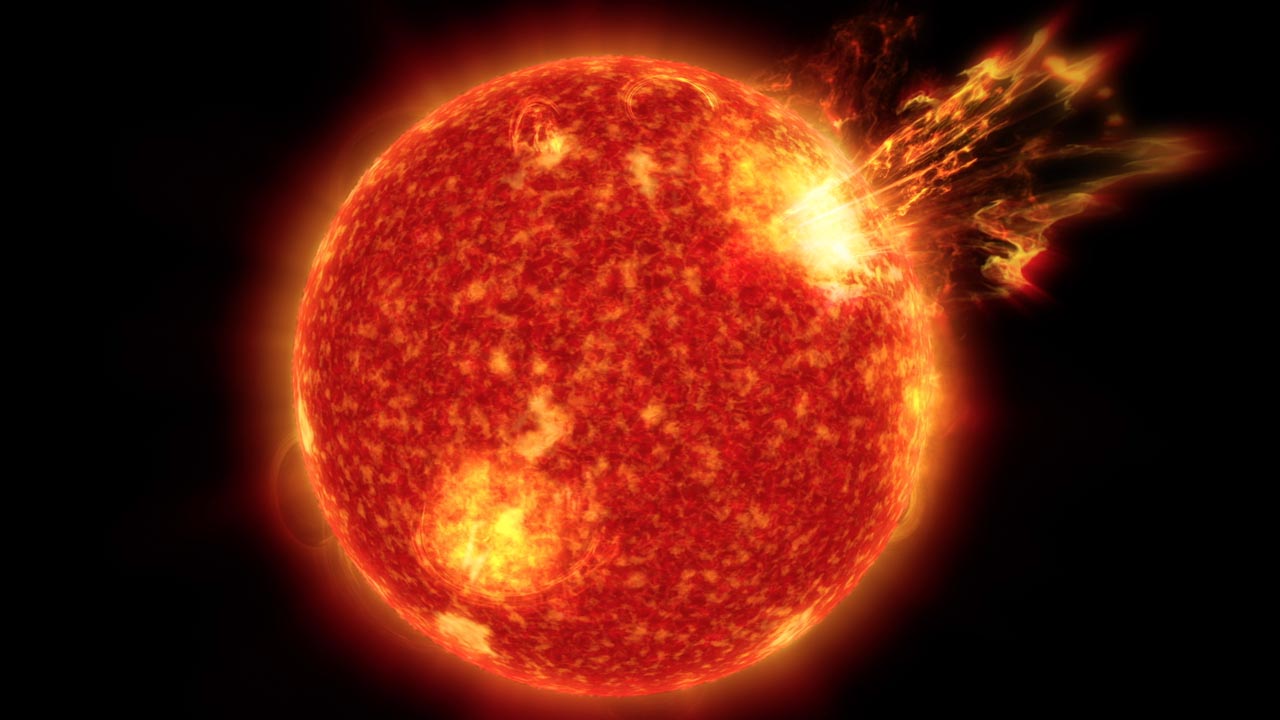SpaceX Delays Launch of Secret Zuma Mission to Thursday

Breaking space news, the latest updates on rocket launches, skywatching events and more!
You are now subscribed
Your newsletter sign-up was successful
Want to add more newsletters?

Delivered daily
Daily Newsletter
Breaking space news, the latest updates on rocket launches, skywatching events and more!

Once a month
Watch This Space
Sign up to our monthly entertainment newsletter to keep up with all our coverage of the latest sci-fi and space movies, tv shows, games and books.

Once a week
Night Sky This Week
Discover this week's must-see night sky events, moon phases, and stunning astrophotos. Sign up for our skywatching newsletter and explore the universe with us!

Twice a month
Strange New Words
Space.com's Sci-Fi Reader's Club. Read a sci-fi short story every month and join a virtual community of fellow science fiction fans!
SpaceX's planned launch of a secret Zuma payload for the U.S. government has been delayed at least 24 hours to Thursday, company representatives said today (Nov. 15).
A SpaceX Falcon 9 rocket was scheduled to launch the Zuma mission tonight between 8 p.m. and 10 p.m. EST (0100-0300 GMT) from Pad 39A at NASA's Kennedy Space Center in Cape Canaveral, Florida. But in a statement released early this morning, SpaceX representatives said they were pushing the launch to Thursday night.
"SpaceX is now targeting Thursday, Nov. 16, for [the] launch of the Zuma mission," SpaceX representatives said in the statement. "Both Falcon 9 and the payload remain healthy; teams will use the extra day to conduct some additional mission assurance work in advance of launch."
The launch time for Zuma mission remains the same, a two-hour window that opens Thursday night at 8 p.m. EST (0100 GMT).
The nature of the government's Zuma mission is a tightly-held secret, with few details known about the mystery payload tucked atop the Falcon 9. [Declassified Spy Satellite Photos and Designs]
We do know that the aerospace and defense company Northrop Grumman arranged Zuma's launch on a SpaceX Falcon 9 rocket for the government.
"The Zuma payload is a restricted payload," Lon Rains, communications director for Northrop Grumman's space systems division, told Space.com in a statement. "It will be launched into low-Earth orbit."
Breaking space news, the latest updates on rocket launches, skywatching events and more!
SpaceX representatives have not released any details on the exact orbital destination of Zuma, nor of the payload's specifications or intended use. However, SpaceX is expected to land the first stage of Zuma's Falcon 9 rocket back on Earth less than 10 minutes after liftoff at the company's Landing Zone 1 located at the Cape Canaveral Air Force Station, which is near NASA's Kennedy Space Center.
According to Rains, Zuma's launch on the Falcon 9 is the most cost-effective and low-risk option for the mission.
"Northrop Grumman is proud to be part of the Zuma launch," Rains said. "The event represents a cost-effective approach to space access for government missions. As a company, Northrop Grumman realizes that this is a monumental responsibility and has taken great care to ensure the most affordable and lowest risk scenario for Zuma."
Zuma's launch will mark the third classified mission for SpaceX for the U.S. government this year.
On May 1, the company launched the NROL-76 spy satellite for the U.S. National Reconnaissance Office. Then on Sept. 7, SpaceX launched robotic X-37B space plane into orbit on the classified OTV-5 mission for the U.S. Air Force. Both flights lifted off from Pad 39A at NASA's Kennedy Space Center in Florida.
The Zuma launch will mark SpaceX's 17th mission in 2017, all of which have been successful. Thirteen of those missions have featured Falcon 9 first stage booster landings as part of SpaceX's ongoing work to develop reusable rockets and spacecraft to lower the cost of spaceflight.
SpaceX's most recent mission was the Oct. 30 launch of Koreasat-5A, a communications satellite for the South Korean company KT Sat.
Email Tariq Malik at tmalik@space.com or follow him @tariqjmalik and Google+. Follow us @Spacedotcom, Facebook and Google+. Original article on Space.com.

Tariq is the award-winning Editor-in-Chief of Space.com and joined the team in 2001. He covers human spaceflight, as well as skywatching and entertainment. He became Space.com's Editor-in-Chief in 2019. Before joining Space.com, Tariq was a staff reporter for The Los Angeles Times covering education and city beats in La Habra, Fullerton and Huntington Beach. He's a recipient of the 2022 Harry Kolcum Award for excellence in space reporting and the 2025 Space Pioneer Award from the National Space Society. He is an Eagle Scout and Space Camp alum with journalism degrees from the USC and NYU. You can find Tariq at Space.com and as the co-host to the This Week In Space podcast on the TWiT network. To see his latest project, you can follow Tariq on Twitter @tariqjmalik.
